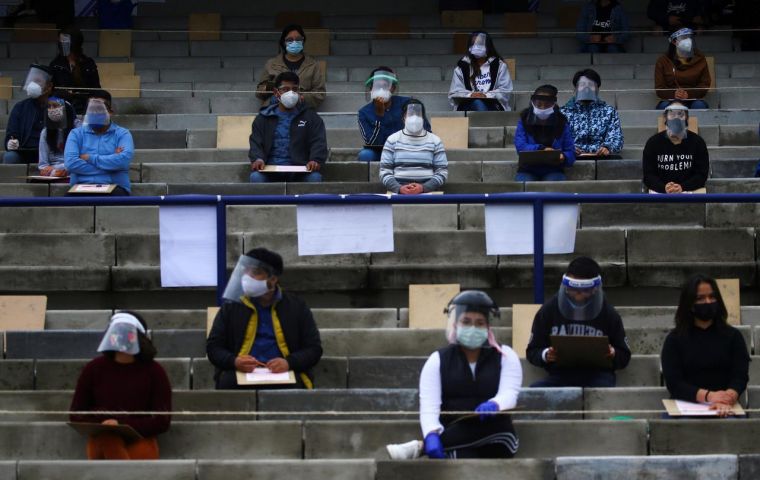MercoPress. South Atlantic News Agency
Young people driving the spread of coronavirus in the Americas, Pan American Health Organization
 “This is not a good sign,” said Etienne who described as a “real disconnect”, the relaxation of containment measures and the continuing spread of the virus.
“This is not a good sign,” said Etienne who described as a “real disconnect”, the relaxation of containment measures and the continuing spread of the virus. Young people are driving the spread of the coronavirus in the Americas, the head of the Pan American Health Organization (PAHO) said on Tuesday, noting that both deaths and caseloads have doubled in the region over the past six weeks.
Briefing reporters on a webcast, Dr Carissa Etienne chastised governments that have rushed economic re-openings despite data that shows a worsening pandemic.
“This is not a good sign. Wishing the virus away will not work,” she said, detailing what she described as a “real disconnect” between the relaxation of containment measures and the continuing spread of the virus.
Paho is the Washington-based Americas arm of the UN World Health Organization.
Since July, coronavirus cases in the Americas have more than doubled to about 12 million confirmed infections, while deaths have shot up by roughly the same rate to some 450,000, according to Paho data.
Etienne said that “the vast majority” of reported Covid-19 cases in the Americas have been among those between the ages of 19 and 59, but that almost 70% of deaths have been among individuals who are 60 years old or older.
“This indicates that younger people are primarily driving the spread of the disease in our region,” she said.
A recent uptick in cases in several Caribbean nations including the Bahamas is also a growing concern, said Etienne, with new infections not only driven by tourism but also returning residents.
Overall, governments should base their re-opening decisions on the best available data and expand testing and contract tracing programs to better identify and control spikes in cases, she said.
Six of the world's 10 most affected countries are in the Americans, said Etienne, pointing to the United States, Brazil, Mexico, Colombia, Peru and Argentina.




Top Comments
Disclaimer & comment rulesCommenting for this story is now closed.
If you have a Facebook account, become a fan and comment on our Facebook Page!